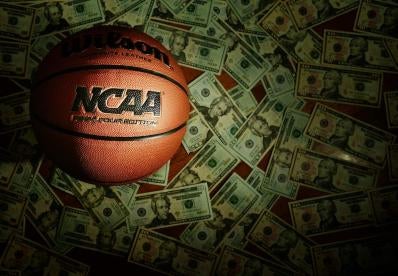Earlier this month, prominent figures in the realm of college sports gathered on Capitol Hill to advocate for federal name, image, and likeness (NIL) legislation. Currently, one NIL bill has been introduced in the House, and there are multiple other draft bills circulating in both the House and Senate. For example, as previously discussed, one of the House draft bills proposes the establishment of a new regulatory agency to oversee college NIL activities. On the Senate side, Sens. Tommy Tuberville and Joe Manchin have drafted a bill that sheds light on the potential federal NIL rules. The draft Senate bill grants the NCAA greater authority in managing NIL instead of creating a new regulatory body.
While the draft Senate bill encompasses numerous changes, there are several key provisions that could significantly impact the NIL landscape. According to the draft bill, college athletes would be prohibited from entering into NIL deals until they are enrolled at the school and have completed at least one semester of coursework. Additionally, the draft bill introduces a reporting requirement for college athlete NIL deals. Under this provision, college athletes must disclose their contracts to their schools within 30 days of entering into an NIL agreement, including compensation amounts, contract duration, and other details.
The draft also proposes the creation of a trust funded by revenue-generating, college-level tournaments, such as the College Football Playoff and NCAA basketball tournament. This trust would cover travel expenses for athletes’ immediate family members and out-of-pocket medical costs related to injuries sustained during college sports. Managed by the NCAA, the trust would provide coverage for athletes for eight years after their eligibility expires or until they turn 28.
Regarding enforcement under the draft Senate bill, the responsibility primarily falls on the NCAA, which would investigate and ensure compliance. Certain NIL violations would be treated as unfair and deceptive acts under the Federal Trade Commission Act. The NCAA would possess the authority to investigate, audit, and impose penalties, including the revocation of licenses for participation in NIL. Additionally, the NCAA could refer violations to the FTC for further action. Failure by the NCAA to fulfill its obligations under the bill could result in the revocation of its tax-exempt status. Notably, the draft does not expressly categorize college athletes as students rather than employees. The issue of employment status for college athletes has become a highly debated topic, with California being at the forefront of the discussion.
It is important to note that the draft bill is not final and may undergo changes based on feedback from college leaders and other stakeholders. The true impact of this draft in comparison to previous lobbying efforts and other NIL bills remains uncertain, as none of the previous bills have reached full committee debate.
While the NCAA and college leaders continue to push Congress for a federal NIL bill, states are taking matters into their own hands by amending their own NIL laws to gain a competitive edge. Legislatures in Arkansas, Colorado, Missouri, Montana, New York, Texas, and Oklahoma have recently introduced or passed bills that aim to prevent the NCAA and conferences from investigating or penalizing schools for NIL rule violations. It is worth highlighting, that the Texas NIL bill was signed into law on June 10, 2023, and will go into effect on July 1. Given Texas’s influence, other states are likely to take steps to align their own NIL laws with Texas’s provisions, if they have not already done so. As the saying goes, everything is bigger in Texas, and its NIL law will likely have a domino effect on the actions of other states.
Most recently, New York passed an NIL bill that currently awaits the governor’s signature. The New York bill closely resembles the NIL bills passed in Oklahoma and Texas. It includes a provision that is becoming more common in state legislation, which the NCAA aims to quash with the enactment of a federal NIL law. Specifically, the New York bill states that athletic associations, conferences, or other entities with authority over intercollegiate athletics, including the NCAA, cannot hinder a college’s participation in intercollegiate athletics based on a student-athlete’s ability to earn compensation from the use of their name, image, or likeness. Moreover, they cannot take adverse actions against colleges for engaging in protected activities or for involvement in a student-athlete’s NIL. The bill also prevents penalization or prevention of a college’s participation in intercollegiate athletics due to violations of collegiate athletic association rules or regulations regarding a student-athlete’s NIL by individuals or entities supporting or benefiting the college or its athletic programs.
The competition within the NIL landscape is expected to intensify as more states pass their own laws and amendments, while the NCAA continues its pursuit for a federal bill. However, the prospects for a comprehensive federal NIL law gaining sufficient support in the current legislative climate remain uncertain. As the landscape evolves, college sports stakeholders will need to navigate through a complex web of state regulations and closely monitor the progress of any proposed federal legislation.




 i
i


